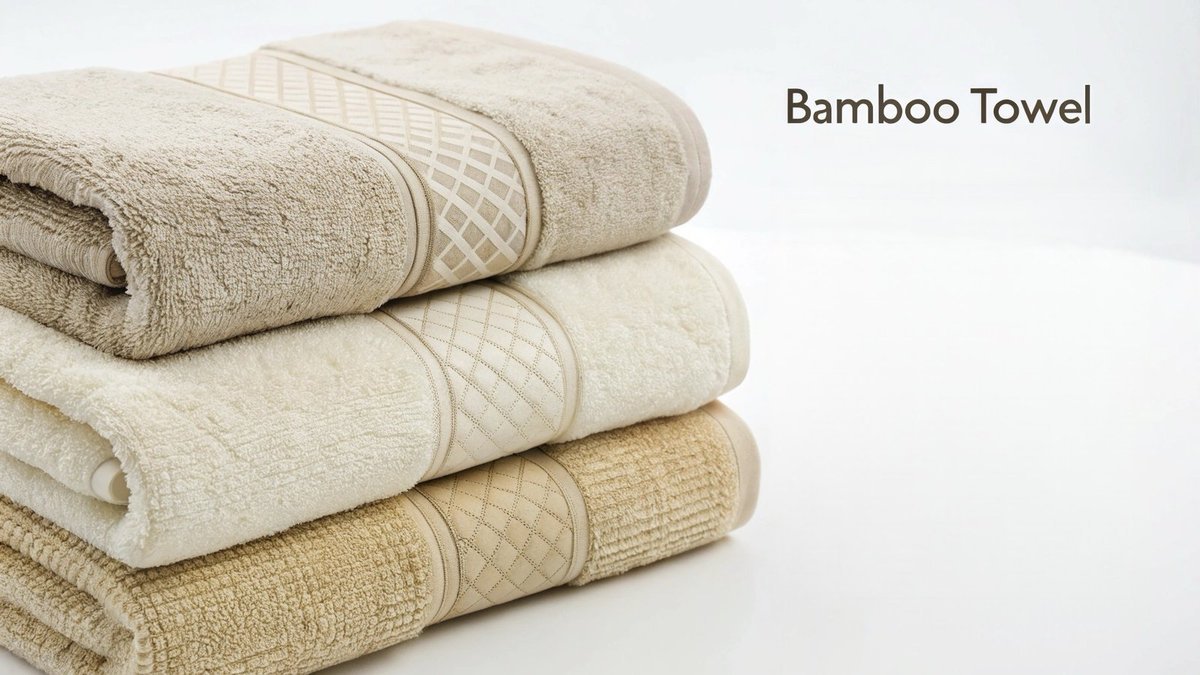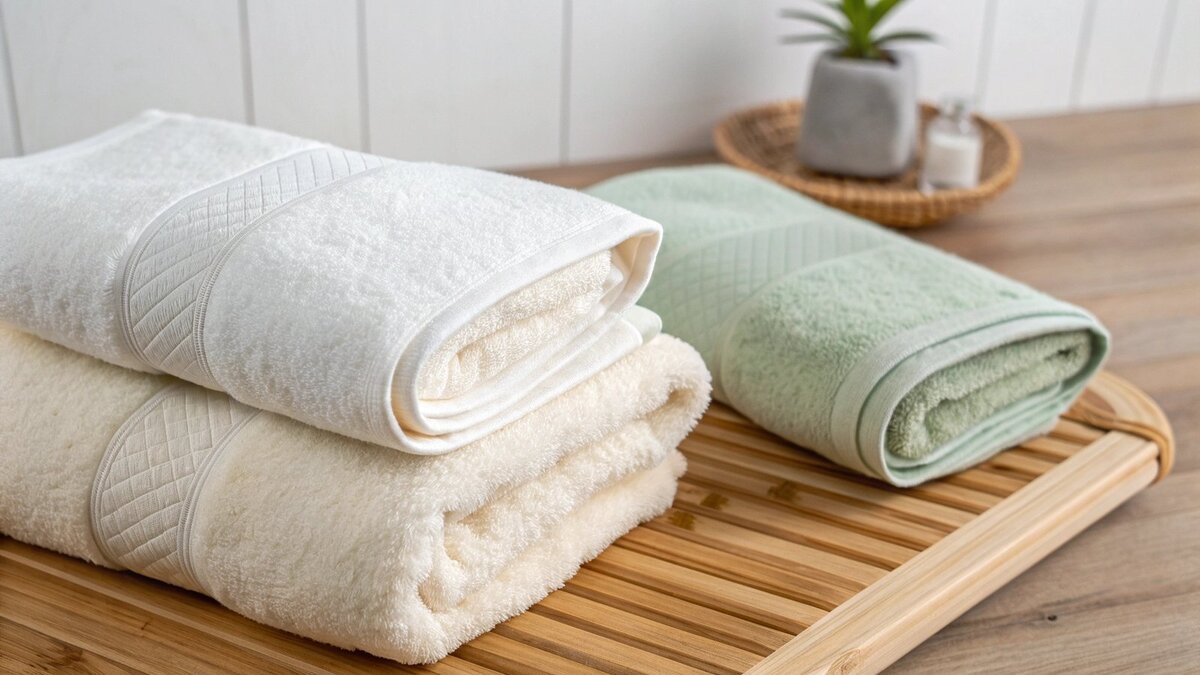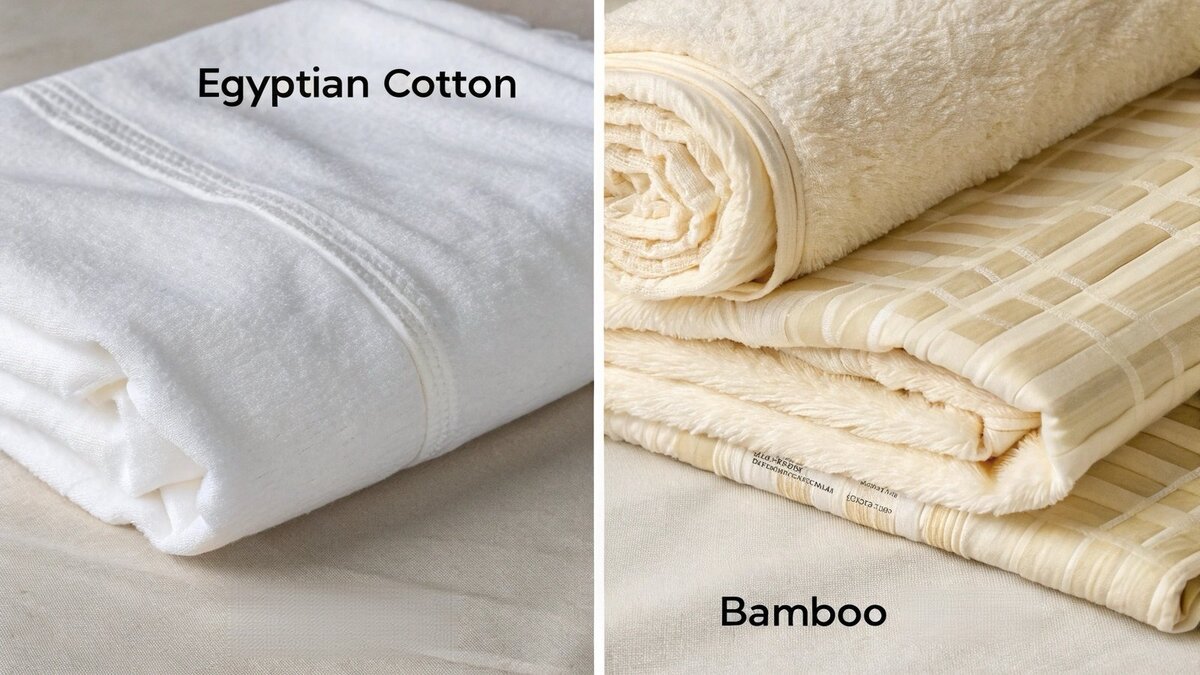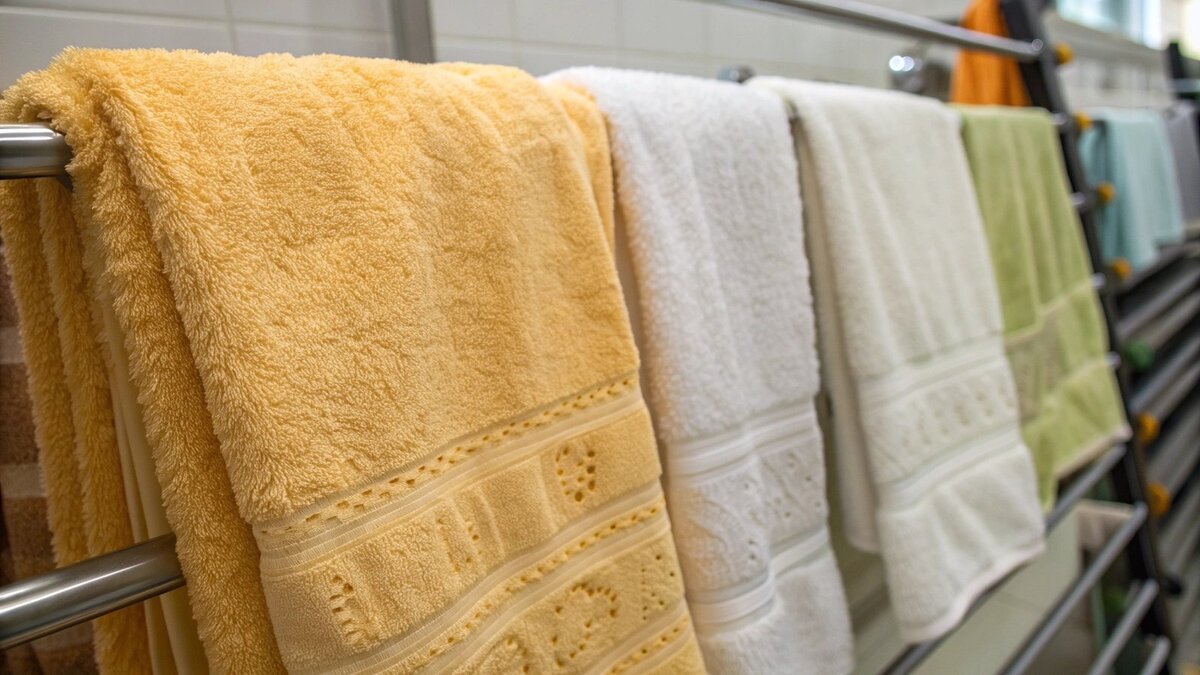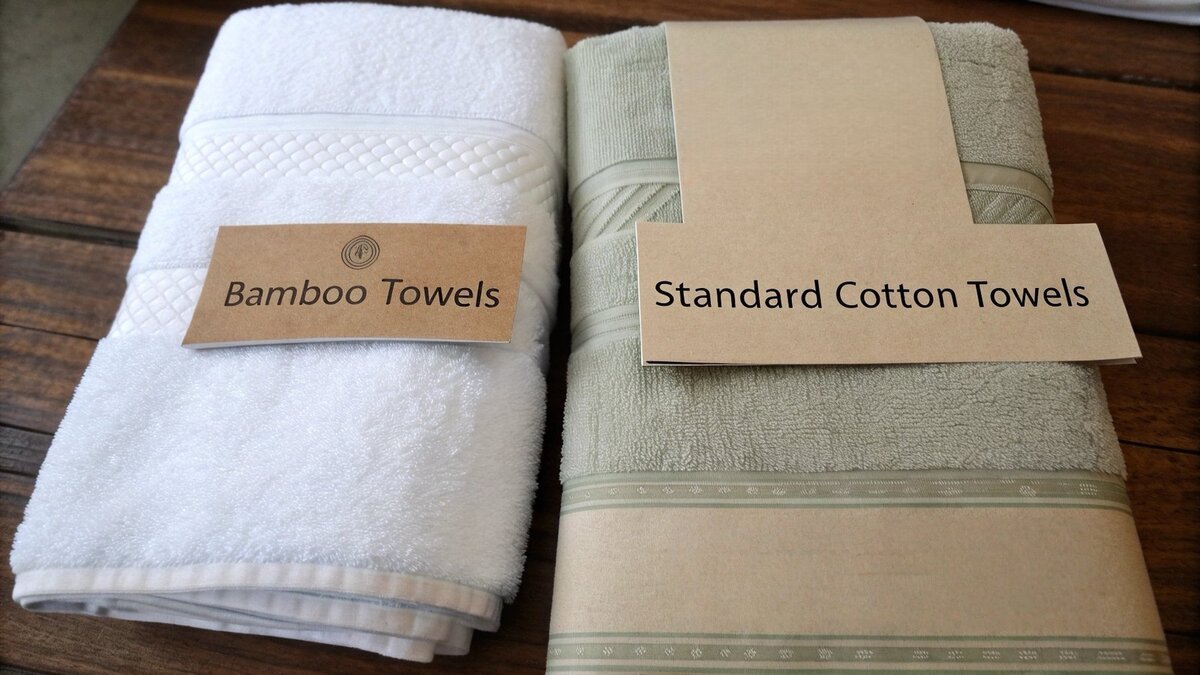Choosing the right towel material can feel like a gamble. A wrong move means unhappy customers and wasted inventory. Let’s break down if bamboo is the right bet for your brand.
Before choosing a bamboo towel manufacturer, know that bamboo offers incredible softness and absorbency, making it ideal for sensitive skin. Key factors to vet are the bamboo blend (100% vs. cotton blend), production certifications like OEKO-TEX, the manufacturer’s MOQ, and their ability to ensure consistent quality.
I’ve guided countless brands through this decision, from small DTC startups to large hotel chains. The questions are always the same, but the right answer depends entirely on your brand and your customer. We need to look past the marketing hype and get to the facts.
So, let’s dig in. We will explore if bamboo towels are any good, how they stack up against the gold standard of Egyptian cotton, how long you can expect them to last, and what disadvantages you must consider. By the end, you’ll have the clarity you need to make a confident, profitable choice.
Does bamboo make good towels?
You see "bamboo" everywhere, but you’re not sure if it lives up to the hype. You need a product that actually performs, not just one that sounds good.
Yes, bamboo makes excellent towels. They are known for being exceptionally soft, highly absorbent, and naturally hypoallergenic. The smooth fibers are gentle on the skin, making them a fantastic choice for luxury, spa, or baby product lines where comfort is the top priority for your customers.
Let’s go deeper than just "soft and absorbent." The reason bamboo feels so good is because of the structure of the fiber itself. Under a microscope, bamboo fibers are naturally very smooth and round. This means they glide over the skin without causing the minor scratching that lower-quality cotton can. I once worked with a new brand launching a line for people with skin conditions like eczema. They were worried about customer feedback. They tested a 100-piece run of our 70% bamboo, 30% cotton blend. The feedback was overwhelmingly positive, with customers specifically mentioning how the towels didn’t irritate their sensitive skin. This unique gentleness is a powerful selling point.
Key Benefits of Bamboo Fabric
| Feature | Description | Why It Matters for Your Brand |
|---|---|---|
| Silky Softness | Fibers are naturally round and smooth. | Creates a luxury feel. Perfect for high-end, spa, or baby brands. |
| High Absorbency | Can hold up to three times its weight in water. | A practical benefit customers notice immediately. Dries them off faster. |
| Hypoallergenic | Natural properties don’t irritate the skin. | Broadens your market to include customers with sensitive skin or allergies. |
| Breathability | The fabric structure allows for better airflow. | Helps towels dry faster after use, reducing the chance of musty smells. |
Which is better, Egyptian cotton or bamboo towels?
Egyptian cotton feels like the safe, classic choice for luxury. But then there’s bamboo, the modern contender. Choosing wrong could mean missing what your specific customers truly want.
Neither is better; it depends on your brand’s specific needs. Egyptian cotton offers unmatched plushness and a classic, weighty luxury feel. Bamboo provides a silky softness for sensitive skin and dries faster. Your choice depends on whether you prioritize traditional luxury or modern, gentle performance.
I often get asked to declare a winner between these two. The truth is, it’s not a competition; it’s a strategic choice. A few years ago, a procurement manager for a five-star hotel chain came to me. They wanted "the best." For their poolside and spa, we decided on bamboo. Guests loved the quick-drying, silky feel after a swim. But for the in-room suites, they stuck with premium Egyptian cotton. They wanted that heavy, plush, classic hotel towel experience that many high-end travelers expect. Your decision should be just as strategic. Think about the end-user and the experience you want to create. Are you selling a wellness lifestyle or a classic luxury one? The answer will point you to the right fiber.
Head-to-Head: Bamboo vs. Egyptian Cotton
| Feature | Bamboo Towels | Egyptian Cotton Towels |
|---|---|---|
| Feel | Silky, smooth, and lightweight. | Plush, thick, and weighty. |
| Best For | Sensitive skin, modern eco-luxury brands. | Traditional luxury, high-end hotels. |
| Drying Time | Dries relatively fast. | Dries slowly due to its thick pile. |
| Durability | Very durable with proper, gentle care. | Extremely durable and gets softer with each wash. |
| Care | Requires gentle wash, low heat. | Can withstand more robust washing cycles. |
How long do bamboo towels last?
You’re about to invest in a significant order of premium towels. The last thing you want is for them to wear out quickly, damaging your brand’s reputation and your bottom line.
With proper care, high-quality bamboo towels are very durable and will last for years. As a general rule for any towel, we advise replacement every two years. Over time, all towel fibers break down, reducing absorbency and showing signs of wear like holes or fraying.
The two-year mark isn’t a hard expiration date, but it’s a good benchmark for peak performance. I’ve seen our bamboo towels last much longer in homes, but in high-turnover environments like hotels or gyms, two years is a realistic expectation. The biggest factor in a towel’s lifespan is how it’s treated. A common mistake I see brands make is not providing clear care instructions to their customers. They assume everyone knows how to wash towels. But bamboo towels have specific needs. High heat is their enemy; it causes the delicate fibers to become brittle and break. Fabric softener is another issue; it coats the fibers with a waxy film, which destroys their famous absorbency. Educating your customer on how to care for their purchase not only helps the product last but also reinforces the value and quality of your brand.
Maximizing the Lifespan of Your Bamboo Towels
To get the most out of your inventory, here are the simple care instructions you should follow and pass on to your customers.
- Wash Before First Use: This helps to remove any finishing coatings and activate the absorbency.
- Use Cold Water: Wash on a gentle cycle with cold or warm water. Avoid hot water.
- Use Mild Detergent: Harsh detergents can damage the fibers.
- Avoid Fabric Softener: It builds up on the fibers and reduces their ability to absorb water. Use 1/2 cup of white vinegar in the rinse cycle every few washes to remove residue and restore softness.
- Tumble Dry on Low: High heat is the fastest way to ruin a bamboo towel. Tumble dry on a low or medium setting, or even better, line dry if possible.
What is the disadvantage of bamboo towels?
Bamboo sounds almost too good to be true. You’re a savvy buyer, and you know there has to be a catch. Understanding the downsides is crucial before committing to a large order.
The main disadvantages of bamboo towels are their higher price point compared to standard cotton and their need for more delicate care. While you pay more upfront, the cost reflects the complex manufacturing process and the premium, long-lasting quality you deliver to your customer.
Let’s be transparent about the downsides. Yes, bamboo towels cost more. The process of turning hard bamboo stalks into soft, silky viscose fiber is more complex and expensive than processing cotton. This is a trade-off. You are paying for a superior feel and performance. For many brands, this elevated price is part of their positioning. They aren’t competing on cost; they’re competing on quality and customer experience. Another key consideration is the environmental aspect of that production process. Turning bamboo pulp into fiber often involves chemicals. That’s why certifications are non-negotiable. When sourcing, you must demand proof of standards like OEKO-TEX STANDARD 100. This certification guarantees that the final towel is tested and proven free from harmful levels of chemicals, protecting both your customer and your brand’s integrity. It turns a potential disadvantage into a verifiable mark of quality.
Understanding the Trade-Offs
| Disadvantage | The Reality and How to Manage It |
|---|---|
| Higher Cost | The price reflects a more complex production process and a premium final product. Position it as an investment in luxury and comfort for your customers. |
| Delicate Care | Requires low-heat washing and drying. This is a drawback for industrial laundries but manageable for home, spa, or hotel use. Educate your customers to ensure longevity. |
| Environmental Process | The viscose process can use harsh chemicals. Mitigate this risk by working only with manufacturers who provide certifications like OEKO-TEX and GRS (Global Recycled Standard). |
| Potential for Snagging | The long, silky loops can sometimes snag more easily than short, tight cotton loops. This is a minor issue but one to be aware of. |
Conclusion
Bamboo towels offer incredible softness and unique benefits. Understanding their pros, cons, and comparison to cotton helps you make the right choice for your brand’s unique place in the market.

